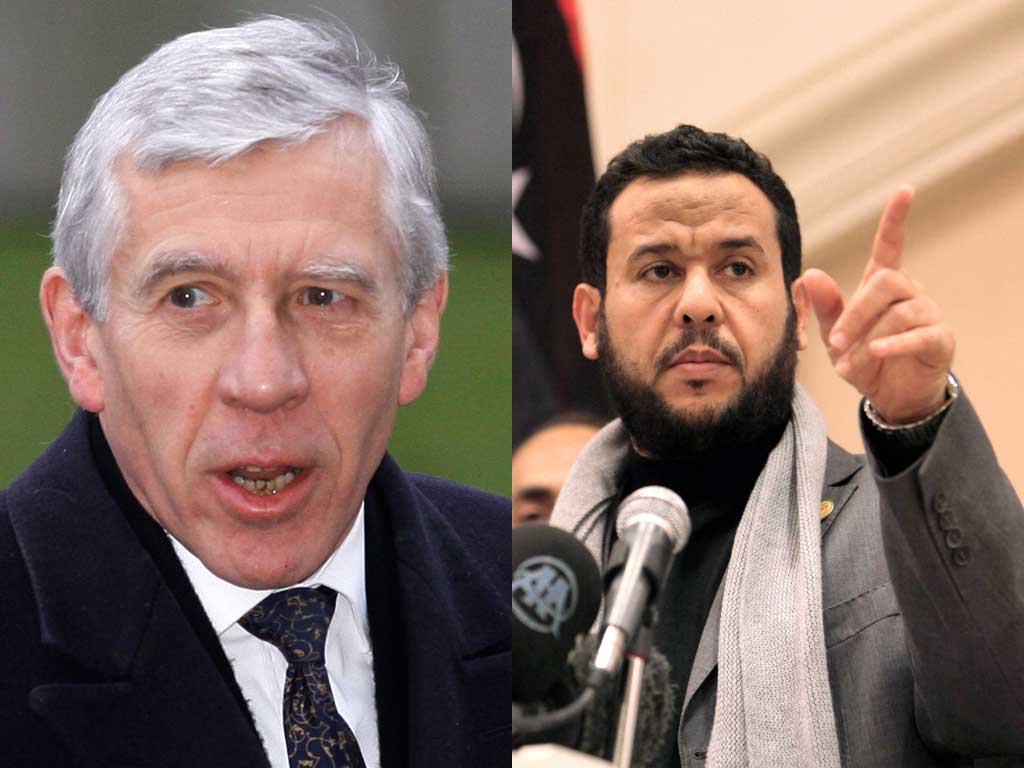Mystery delay on check into torture claims
Libya has failed to grant British police leave to interview alleged victims of rendition

Detectives investigating allegations of British involvement in illegal rendition and torture are being hampered in their efforts to interview witnesses.
Attempts to interview two Libyans who say they were tortured by the Gaddafi regime after being returned to Tripoli with British and US help are being thwarted by a delay in granting permission for detectives to travel to Libya.
Without witness statements, the investigation to discover the extent of British knowledge and involvement is effectively blocked.
Details of the frustrated investigation emerged after it was revealed that the UK and Libya had quickly reached a deal permitting Scotland Yard detectives to travel to Tripoli to pursue their investigation into PC Yvonne Fletcher, who was murdered by a Libyan official inside its London embassy in 1984.
It will also fuel speculation that the two countries are eager to reach an agreement which allows both to avoid awkward or embarrassing legal or official inquiries. It is also likely to add pressure on the UK Government to launch a fresh inquiry into allegations of wrongdoing by the UK's security services. Justice Minister Ken Clarke announced that an inquiry claims that MI5 and MI6 had aided and abetted the rendition, and ill-treatment of terrorism suspects in the wake of 9/11 could not continue because of the Scotland Yard investigation into the Libyan allegations.
The fresh investigation was prompted by the discovery of evidence implicating British officials which was found in the office of the former Libyan intelligence chief Abdullah al-Senussi.
One of the alleged rendition and torture victims, Abdel Hakim Belhadj, 45, a Libyan military commander, is now suing former foreign secretary Jack Straw. The legal move follows the revelation that the British government had facilitated the rendition of Mr Belhadj, although it is unclear at exactly what level.
Mr Belhadj claims that in 2004, CIA agents took him against his will from Thailand to Libya, via the UK-controlled island of Diego Garcia in the Indian Ocean. At that time Mr Belhadj was the leader of the Libyan Islamic Fighting Group, living in exile in China. MI5 believed LIFG had close links to al-Qa'ida and Mr Belhadj alleges he and his wife were detained by US agents in Bangkok as they travelled to the UK to claim political asylum. A second man, identified as Abu Abdullah Sadiq, says he was tortured during the rendition process itself as well as after his arrival in Libya, where he was subsequently imprisoned.
It is understood the Metropolitan Police applied for visas to travel to Libya to interview Mr Belhadj and other witnesses in February but are still awaiting a reply according to Westminster sources. A source said: "The police applied for the visas at the end of February and have had no news back from the Libyans. It is a little frustrating now to read that the Prime Minister can arrange with the Libyan president for the officers investigating Yvonne Fletcher to go over just like that."
A Met Police spokesman said: "Talks will be held with the Foreign Office and Libya to arrange a visit."
The Libyan embassy was unavailable for comment.
